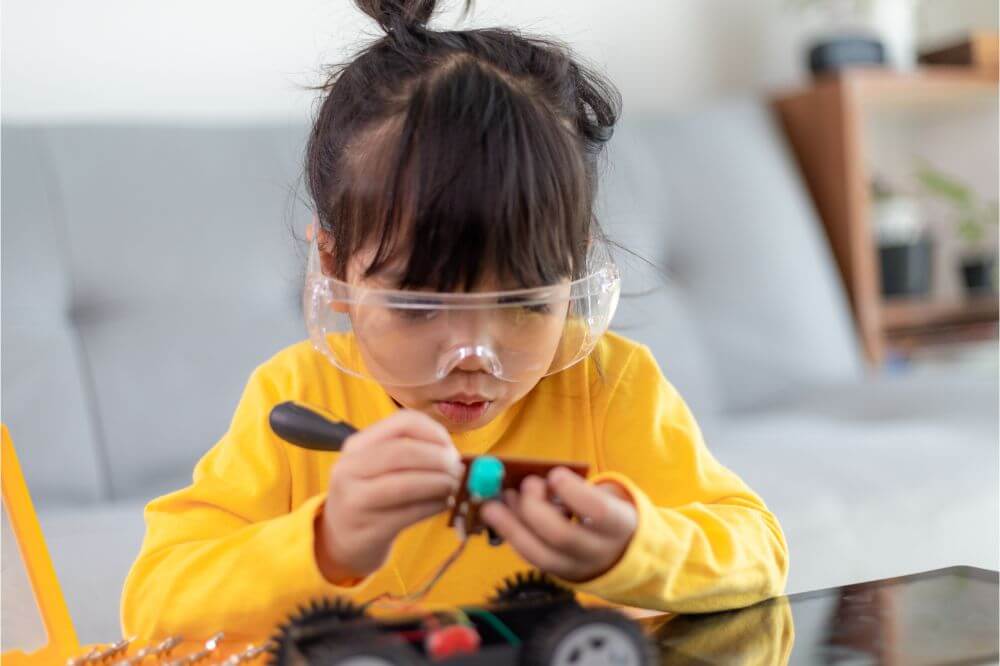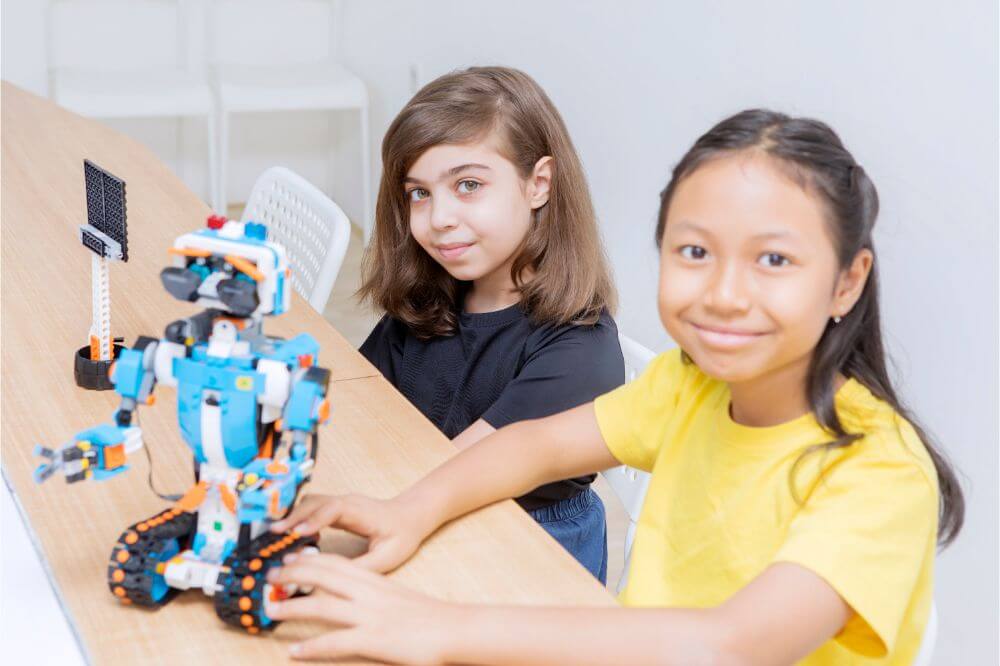We hear a lot these days about social-emotional development in children and just how important it is. So, is this another fad parents are expected to jump on board with? Or is it something very real and important?
Social-emotional development is vital to ensure your children are fully prepared to enter school. Yes, other critical skills are reading, writing, and numbers. However, it is even more important to ensure your children have the skills to help themselves and interact with their peers.
Some of these social-emotional skills are very basic, such as children being able to wipe their noses, use the restroom without help, put on coats and boots, etc. Learning to follow instructions is also part of this, as is interacting with other children and adults. These skills are just as essential, if not more so, as basic academic skills.
Today we will look at social-emotional development and how you can encourage it with your own children. Let’s get started.
What is Social-Emotional Development?
We hear the terms “social-emotional development” and “social-emotional learning.” But what do they mean?
Let’s start with social-emotional development. This is basically how a child understands and deals with their emotions, how they recognize the feelings of others, and how they can create positive relationships.
Skills needed in this area include conflict-solving, learning to cope with challenges, and setting and reaching goals.
Plenty of evidence shows just how crucial social-emotional development is, especially in early childhood.
What is learned as children will take them through school and their future work lives. For example, the U.S. Department of Education states that one of the “five essential domains of school readiness” is social-emotional development.
Social-Emotional Learning
One of the most critical building blocks of cognitive learning is social-emotional learning. In fact, it is so important that some experts in early education have labeled it as learning how to be a good human being.
This learning should begin in infancy. The sooner your child starts learning these skills, the better off they will be when it comes time for them to enter school.
Identifying Social-Emotional Skills
To be able to connect with others, we all need to have social-emotional skills. These skills are necessary for us to deal with our emotions, create and sustain healthy relationships, and have empathy for others.
Here are some examples of social-emotional skills:
- Being able to recognize when someone else is sad and ask them if everything is okay
- Being able to express yourself differently with friends than with family
- Understanding one’s own feelings and thoughts and being able to relate to the thoughts and feelings of others
Social and emotional development begins in infancy. In fact, babies start learning these skills from the moment they are born. For example, when they begin to interact with their caregivers, they start to understand and develop their own feelings.
The term “it all begins at home” is true regarding social-emotional development. Parents must nurture these skills for their children to develop healthy relationships with others.
So, you must set a good example for your children. They will automatically follow your lead, so be sure to set them on the right path in their earliest stages of development.
Why are Social-Emotional Skills Important in Early Childhood?
A child with healthy social-emotional skills has a much better chance of succeeding in school than those who have not learned these skills. They also have a better chance of succeeding in life in general.
Some of the ways social-emotional skills can help children include:
- Gain confidence
- Learn to resolve conflicts
- Learn how to manage anxiety and stress
- Make friends, and keep those friendships
- Learn social norms
- Learn how to make the right decisions
- Understand their own strengths and weaknesses
- Avoid succumbing to peer pressure
- Understand what others are feeling
Social-Emotional Strategies for Parents
Social-emotional growth doesn’t happen overnight. It takes time, and early experiences play a significant role in the development of children. Every experience we have shapes our lives, so parents must ensure that their children have many experiences at a very early age.
These can include but are not limited to meeting new people, learning how to deal with anxiety in difficult situations, and even raising their own children one day.
Let’s look at some home and school strategies to help your children with early social-emotional development.

At Home
Listen to Your Children
Listening is considered to be a “core competency skill.” Parents must listen to their children to teach them how to listen to others. Unfortunately, this skill is not always practiced, which can be detrimental in the long run.
Being a Role Model for Your Children
Children learn from what they see others doing. So, if you want to encourage social-emotional development in your children, you need to be a role model. Show kindness to others, and let your children see that you have empathy. Remember, your actions may have a much more significant impact than you think.
Nurture their Self-Esteem
A happy, well-adjusted child will do better in school than children who do not have social-emotional skills. Make sure you find ways to foster their self-esteem, such as through responsibilities that will help them make the right choices. Always show them how much you appreciate their efforts.
Respect their Differences
Every child is different and should not be treated as every other child. Everyone has their own unique skills and talents. Therefore, do not compare your children to other children. Instead, support and encourage them, and praise them for their accomplishments.
At School
Find Out About School Efforts in Supporting Social-Emotional Learning
Most schools have programs focusing on social-emotional learning, although each school may call its programs different names.
Speaking to your children, their teachers, and the principal about activities and programs in social-emotional learning, preventing and solving problems, promoting healthy living, and available support services are crucial.
Bring in Guest Speakers
Did you know that you don’t have to rely on the school administration and teachers to schedule appearances by guest speakers? Instead, you can work with the school’s parent association to find experts in your community to speak with teachers and parents about how to foster social-emotional learning and development.
Become Involved
There are many programs at schools that parents can become involved in. Talk to the school or someone from the district about becoming engaged with social and emotional learning programs.
Conclusion
As we stated earlier in this article, social-emotional learning and development begin at home, during the earliest stages of infancy. The more time you take to work with your children on these skills, the better off they will be for it in the long run.
You will raise children who will become happy, well-rounded, well-adjusted adults.






